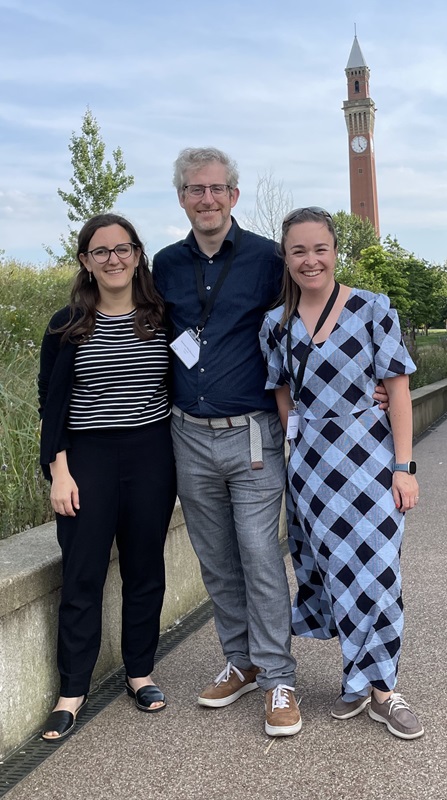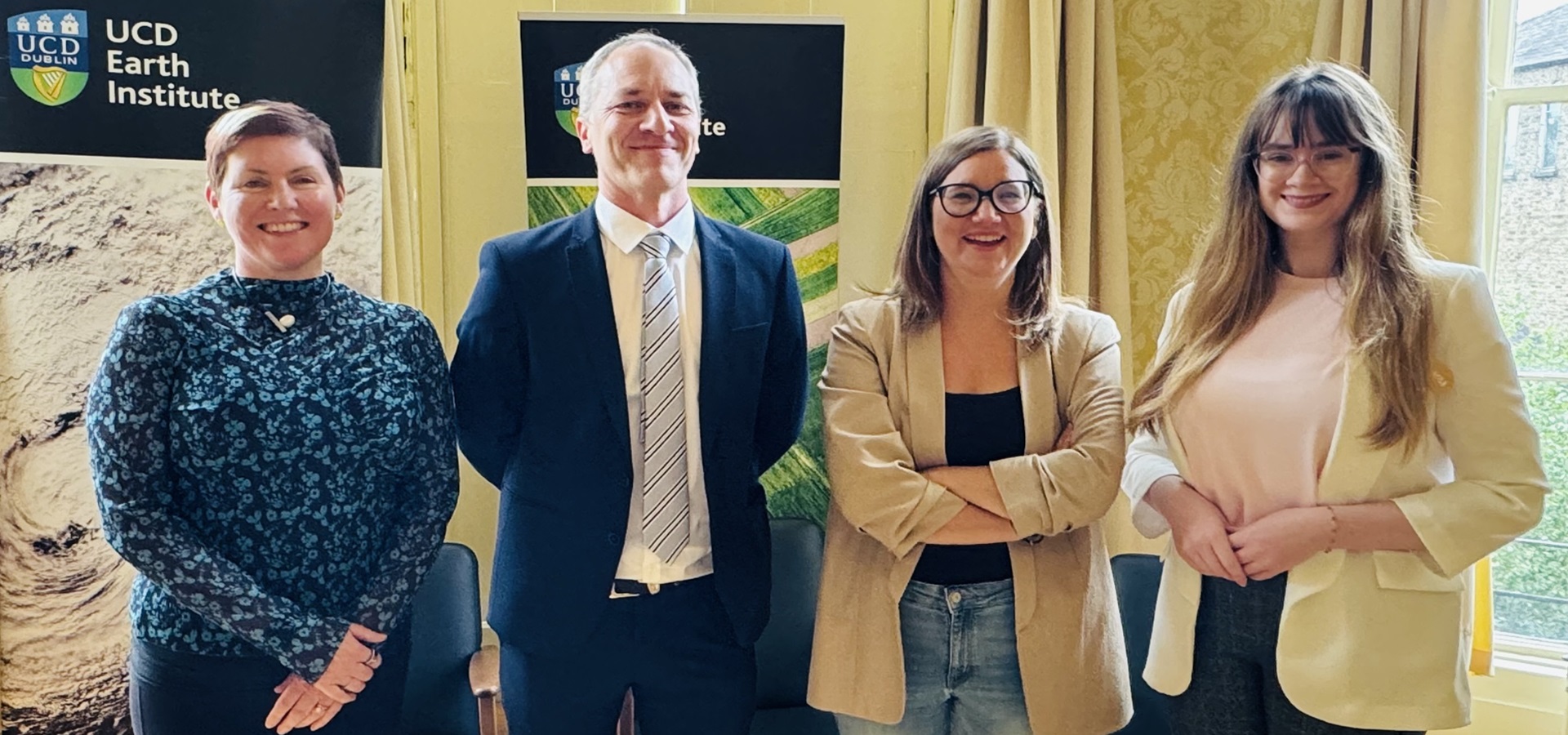Modernising Wind Load Standards for Ireland: A Partnership Driving Policy and Safety
"Modernising Wind Load Standards for Ireland", a pioneering project led by Earth Institute member Jennifer Keenahan (UCD School of Civil Engineering) and aimed at updating Ireland’s wind loading standards, has secured funding from the Construct Innovate seed funding call. This initiative will significantly impact Ireland's construction industry by aligning wind load standards with contemporary building types and environmental conditions.
 |
|
|
Left to right: Rubina Ramponi (Arup), Reamonn MacReamoinn (Arup), and Jennifer Keenahan (UCD). |
The project is a collaboration between UCD, Arup, and the National Standards Authority of Ireland (NSAI). Arup, a global leader in design and engineering, brings its extensive expertise to the table, with key team members including Reamonn MacReamoinn, Arup Europe Wind Skills Leader, and Dr Rubina Ramponi, Senior Wind Engineer at Arup. Their involvement ensures the research is grounded in real-world application and industry needs.
The NSAI plays a pivotal role in this project. As the body responsible for the Eurocodes National Implementation Programme, the NSAI’s collaboration ensures that the research directly informs national standards. Eurocodes are a series of ten European technical standards that provide a common approach to the structural design of buildings and other civil engineering works. Ken Murphy, a Standards Officer at NSAI, will be a key collaborator, providing valuable insights and facilitating the integration of the project’s findings into national policy.
Addressing a Critical Need
The project stems from the urgent and critical need to revise wind load standards in Ireland, currently governed by the Eurocodes. These standards are undergoing updates, and it is crucial that the new codes reflect the modern Irish cityscape accurately. The primary objective is to compare wind loading values from both the existing and new Eurocodes across various building types and locations in Ireland. This comprehensive analysis will ensure that the standards are neither overly conservative nor insufficiently protective.
Research and Impact
A Research Masters student will conduct the 18-month study under the supervision of experts from UCD and Arup. The research will involve detailed comparisons of wind loading values for various building forms and locations in Ireland, identifying significant differences and proposing adjustments to the national standards.
The outcomes of this project are anticipated to be highly impactful. Accurate wind load specifications are essential for building safety and efficiency. By avoiding over-conservative designs that waste materials and under-conservative designs that could compromise safety, the project aims to enhance economic savings, environmental sustainability, and overall construction practices in Ireland.
Policy and Societal Benefits
This project aligns with the national efforts of the NSAI in reviewing and adopting the 2nd Generation Eurocodes and drafting new Irish National Annexes. By directly informing the selection of Nationally Determined Parameters (NDPs) in these annexes, the research will have a lasting policy impact. The new standards will likely be in use for over 20 years, ensuring that the project’s benefits are far-reaching and long-lasting.
From a societal perspective, the project promises significant benefits. Enhanced building designs will improve safety for all, while more efficient use of materials will contribute to environmental sustainability. The collaboration with NSAI ensures that these benefits are realised through robust national standards.
Further Reading
Jennifer Keenahan also contributed an Earth Comment piece on Airflow and Architecture: How Fluid Dynamics Shapes Our Skylines. The tragic incident of the Baltimore Bridge collapse serves as a stark reminder of the critical importance of integrating fluid dynamics into engineering practices. While the collapse of the bridge was due to the ship colliding with a bridge pier, understanding the prevailing current flows and how they might bring a ship off-course is hugely important, says Jennifer Keenahan (UCD School of Civil Engineering).
Earth Comment provides comment, opinion and explainers on environmental, climate and sustainability issues from leading experts in the UCD Earth Institute.

